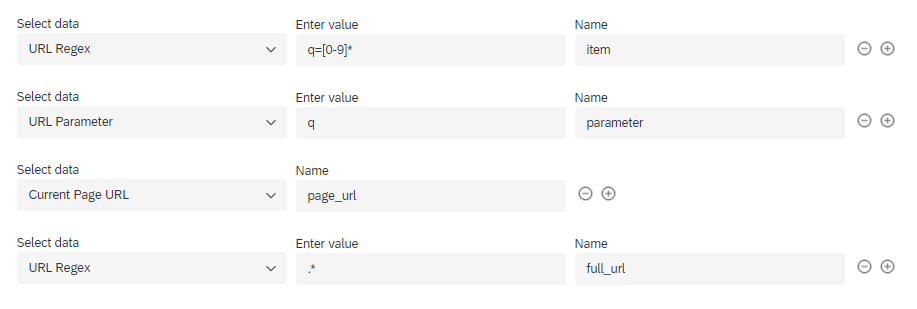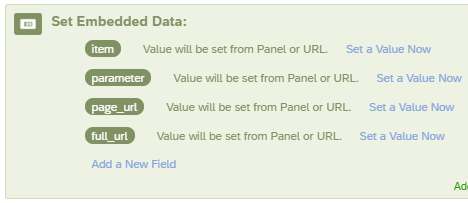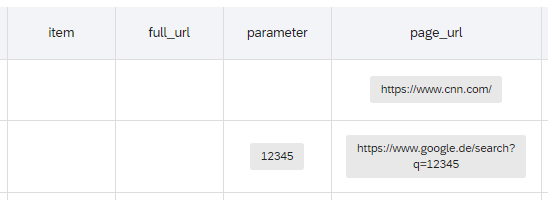Hi there,
I'm trying to figure out how URL RegEx works.
My expectation: the RegEx is used on the URL. The match will be the variable value. Is here eventually my idea behind this functionality incorrect? I couldn't find a description.
I tried to identify the functionality by "try and error". So I'm using the following RegEx that should match the whole URL:
https://regex101.com/r/6moopu/1 ==> RegEx = ".*"
My setting in the intercept:
My setting in the survey: My Survey Data:
My Survey Data:
My expectation would be that the URL is captured in full_url. What is incorrect here? Anyone has an idea?
As you can see, the other functionalities (URL Parameter and Current Page URL) work. So the connection between intercept and survey should work as expected.
Best regards,
Dominic
Best answer by Dominic
View original



